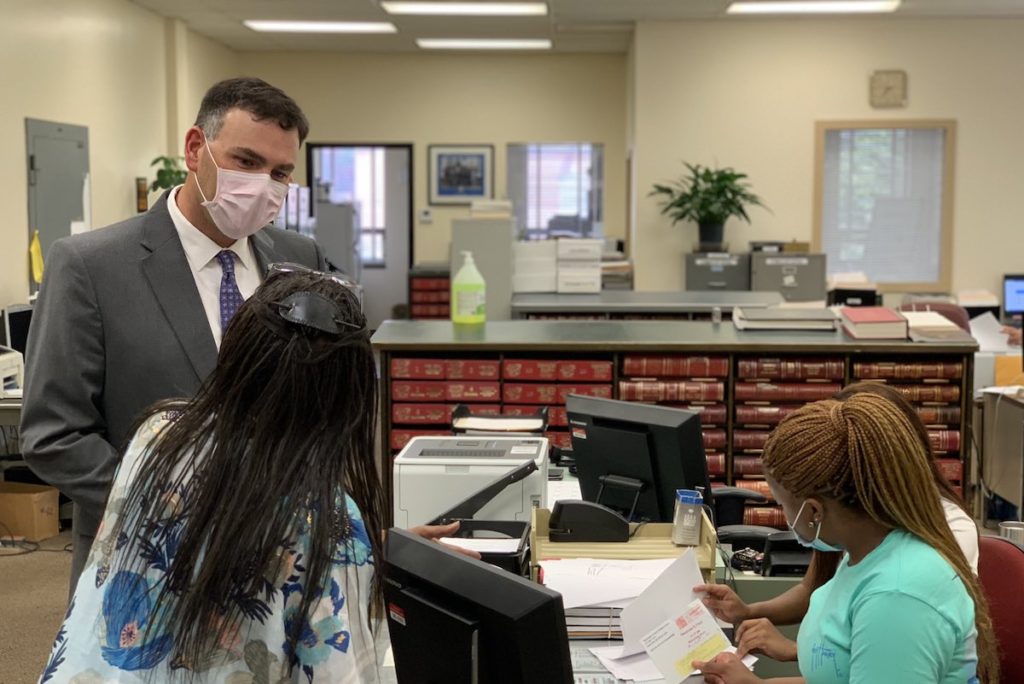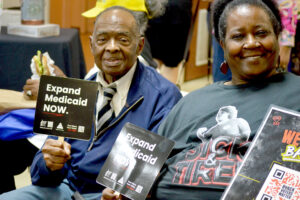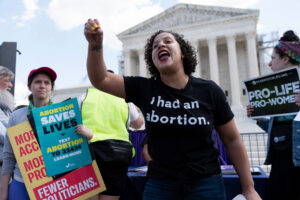Mississippi voters with pre-existing conditions who have “a higher risk of severe illness or death” if they contract COVID-19 while voting in person should not be allowed to vote absentee, the State’s attorney general and secretary of state said in a court filing today.
Last week, Hinds County Chancery Court Chancellor Denise S. Owens ruled that election officials must allow people with health conditions that make them more vulnerable if infected to vote absentee under State law.
The chancellor pointed to the Mississippi Election Code, which allows a voter to mail an absentee if they have a “physical disability” and their “attendance at the polling place could reasonably cause danger to himself, herself, or others.”
In an appeal to the Mississippi Supreme Court today, though, Attorney General Lynn Fitch and Secretary of State Michael Watson disputed the ruling.
“Any voter who has a pre-existing condition that is not itself a ‘physical disability’ cannot satisfy the statute, whether or not the voter believes that COVID-19 might make voting in-person dangerous,” the appeal claims.
Fitch’s brief noted that members of Mississippi’s congressional delegation, people who work during polling hours, those caring for a dependent with a qualifying disability who is hospitalized, and students, teachers or teachers’ spouses may vote absentee under Mississippi law.
Earlier this year, the Mississippi Legislature also updated the law to allow people to vote absentee if they are under a “physician-imposed quarantine” or caring for someone who is under a “physician-imposed quarantine.”
If Fitch and Watson’s appeal is successful, most Mississippians under 65 with health conditions like heart disease, diabetes, lung disease or cancer would still have to vote in person even though those conditions put them at greater risk for severe illness or death from COVID-19.
The ACLU of Mississippi and the Mississippi Justice Center first asked a court to declare that Mississippians with pre-existing conditions could vote in August.
“This ruling means more Mississippians will not have to risk exposure to a deadly virus in order to vote. The court should have extended this to all voters, and we are examining next steps to ensure everyone can protect their health and their vote,” ACLU staff attorney Theresa Lee said in a Sept. 3 statement after last week’s decision.
Attorney Rob McDuff, the director of the Mississippi Center for Justice’s George Riley Impact Litigation Initiative, said in the statement that the court made the correct decision.
“But we believe the right to vote extends even further and requires that absentee voting be available to all Mississippi voters who are following public health guidance and avoiding community events during this pandemic,” McDuff said
The State’s appeal brief today claimed that the secretary of state’s office is implementing rules at polling places to make voting in person safer, including requiring and providing personal protective equipment for poll workers; imposing social distancing measures; allowing curbside voting options; and “mask recommendations for voters.”
The secretary of state’s office is not requiring masks at polling places, though. Gov. Tate Reeves’ statewide mask mandate remains in effect, but it will expire later this month unless he decides to extend it.










